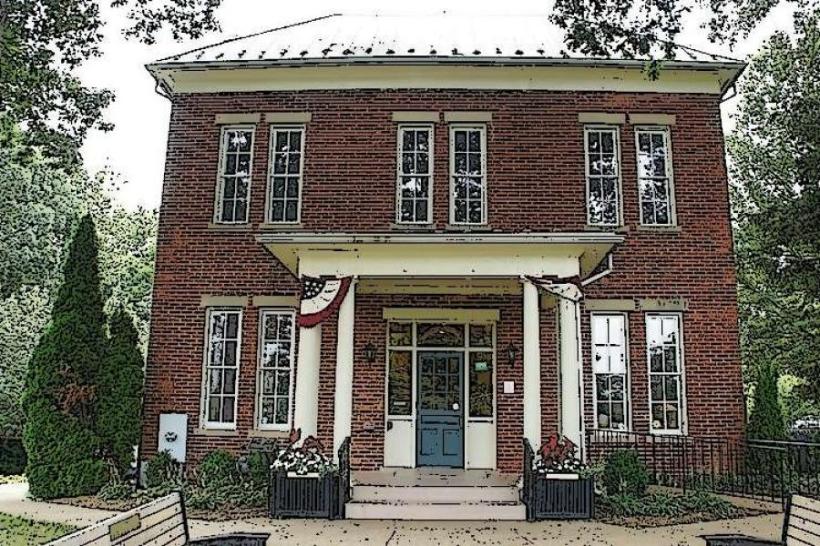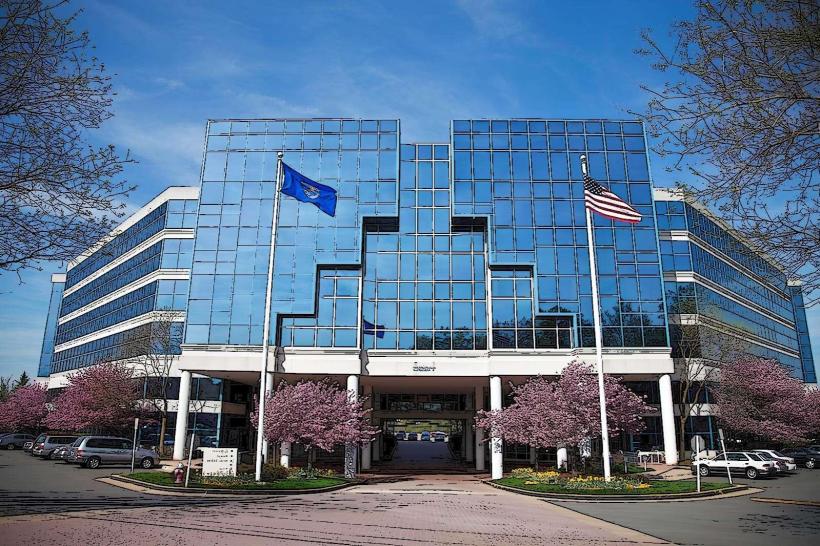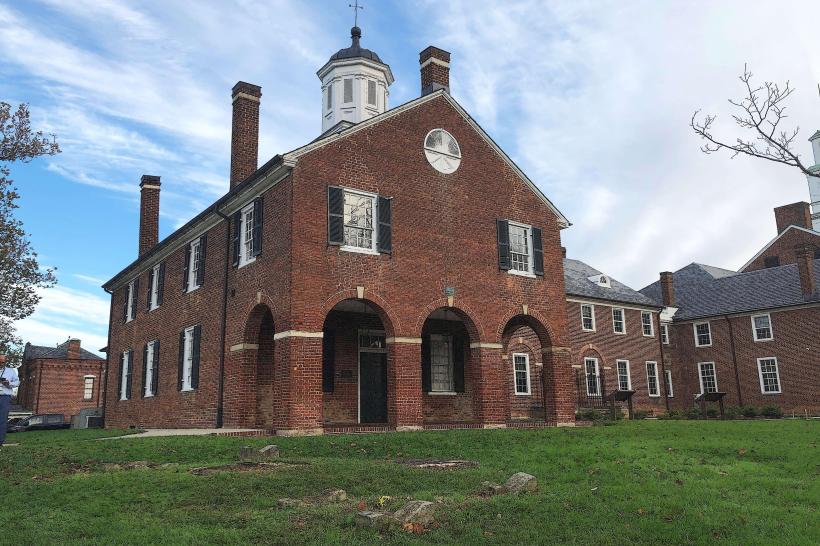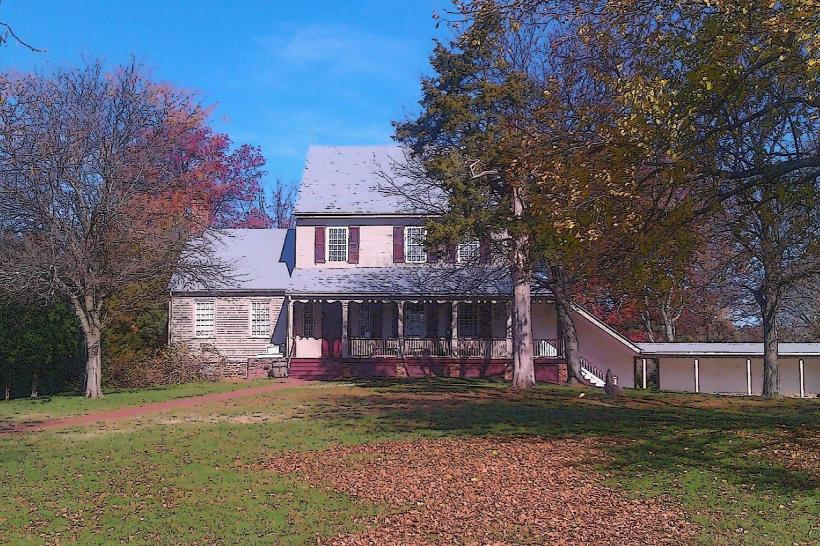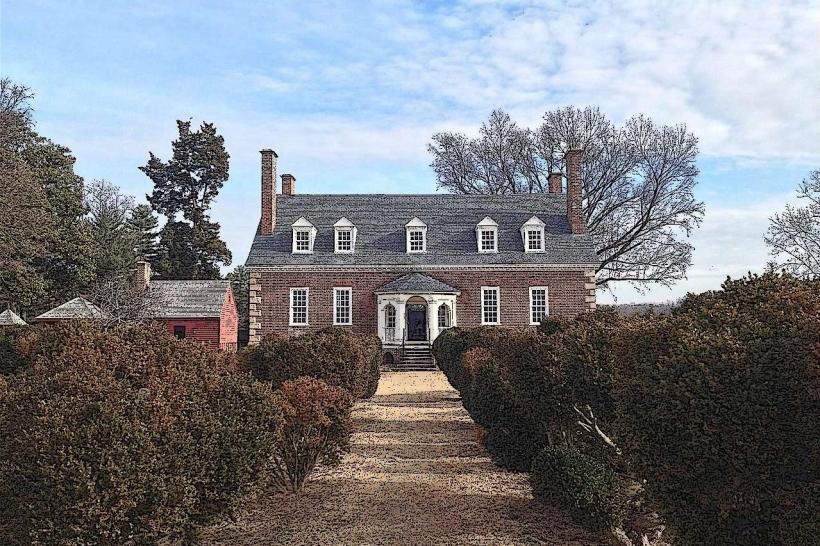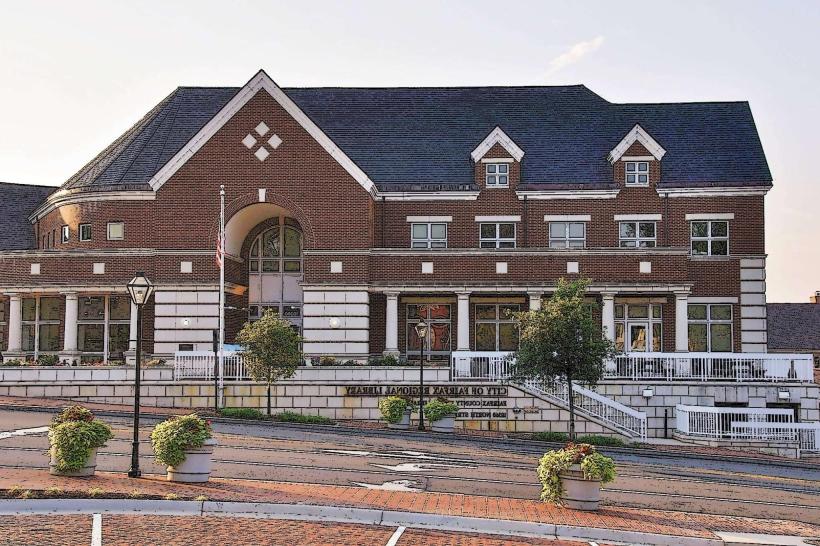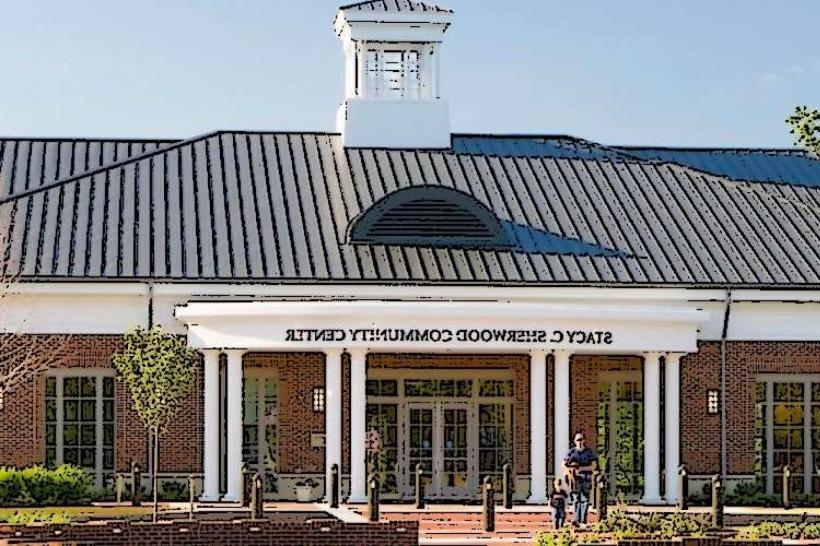Information
Landmark: Ellanor C. Lawrence ParkCity: Fairfax
Country: USA Virginia
Continent: North America
Ellanor C. Lawrence Park, Fairfax, USA Virginia, North America
Ellanor C. Lawrence Park is a remarkable 640-acre natural and cultural preserve located in Chantilly, Virginia, just north of Centreville. This park is managed by the Fairfax County Park Authority and serves as an extensive area combining rich history, diverse ecosystems, and a wide array of recreational opportunities, making it a significant destination for outdoor enthusiasts, history buffs, families, and educational groups.
Natural Environment and Trail System
The park's landscape features a mosaic of natural habitats, including mature oak-hickory forests, open meadows, flowing streams, and a peaceful pond. These diverse environments support a variety of wildlife, especially attracting birdwatchers due to the abundant bird species thriving here.
There are approximately four miles of trails meandering through the park, providing visitors with different experiences depending on their interests and fitness levels:
Big Rocky Run Stream Trail: This is a key paved or gravel trail extending from Cabell’s Mill to the Fairfax County Parkway, suitable for cyclists, walkers, and joggers. It follows alongside the Big Rocky Run stream, offering scenic views and opportunities to observe aquatic and riparian wildlife.
Other trails: Less developed paths traverse through wooded areas and meadows, following smaller streams such as Walney Creek and Round Lick Run, offering more secluded and immersive nature experiences.
Fishing is allowed in Walney Pond and parts of Big Rocky Run, adhering to state fishing regulations and licensing, making it appealing to anglers.
Historical Significance
Ellanor C. Lawrence Park holds a deep historical heritage dating back over 8,000 years with archaeological evidence showing Native American presence. Over time, the land transitioned through European settlement and agricultural use, primarily shaped by the Brown, Machen, and Lawrence families, whose legacies are still visible today.
Several historic buildings and structures are preserved within the park, offering visitors a glimpse into the region’s past:
Walney House: An 18th-century farmhouse that has been restored and serves as the visitor center today. It reflects colonial architecture and agricultural life from centuries ago.
Cabell’s Mill: A historic mill site once used for grinding grain, showcasing early American rural industry.
Middlegate: A 19th-century stone house representing later agricultural development in the area.
These landmarks provide rich educational opportunities, with guided tours and interpretive signage explaining their historical context.
Walney Visitor Center
The Walney Visitor Center, housed in the restored 1780 Walney farmhouse at 5040 Walney Road, is the park’s educational and interpretive hub. It features:
Exhibits on the park’s natural ecosystems and cultural history, including Native American artifacts and colonial farming implements.
Live animal displays showcasing native wildlife species, which engage visitors of all ages.
A children’s touch table that allows young visitors to interact with natural objects, fostering hands-on learning.
A greenhouse and nature-themed educational programs, including guided nature walks, historical reenactments, and seasonal events.
The center operates Monday and Wednesday through Friday from 9 a.m. to 5 p.m., and on weekends from 12 p.m. to 5 p.m., while remaining closed on Tuesdays.
Recreational Facilities
The park is well-equipped for active recreation, particularly on the western side of Route 28, featuring:
Athletic fields designed for soccer, baseball, and softball, supporting local sports leagues and casual play.
Two modern playgrounds with climbing walls, slides, and other engaging play structures, ideal for families with children.
A fitness trail integrated with exercise stations, encouraging visitors to combine outdoor walking or jogging with strength and flexibility workouts.
Picnic areas and shelters with amenities that can be reserved for group gatherings, family celebrations, or community events.
These facilities provide a balanced blend of natural exploration and structured recreational activities.
Programs and Community Engagement
Ellanor C. Lawrence Park actively offers diverse programs to engage visitors of all ages and interests, emphasizing environmental education and historical awareness. Popular programs include:
Birdwatching and nature walks: Led by knowledgeable guides, these walks help visitors learn about local flora and fauna.
Historical reenactments and storytelling: These events bring the park’s colonial and Native American history to life through immersive experiences.
Special seasonal events: Such as "Parktoberfest," a fall celebration featuring crafts and outdoor activities; "Spy Craft," focusing on historical espionage and related stories; and "Critter Crawl," a family-friendly event focusing on native wildlife.
Educational workshops and school field trips are also frequently hosted at the park, supporting curriculum-aligned learning in biology, ecology, and history.
Visitor Information and Access
Location: 5040 Walney Road, Chantilly, VA 20151, conveniently accessible for residents and visitors in the greater Fairfax County area.
Hours: Trails and park grounds are open daily from dawn to dusk. The Walney Visitor Center has more limited hours, open Monday and Wednesday through Friday, 9 a.m. to 5 p.m., and Saturday and Sunday from noon to 5 p.m. It is closed on Tuesdays.
Admission: Entry to the park is free for individuals and families, promoting accessibility. Group visits of 12 to 60 people require a $30 fee, with an additional $1 per person charge for groups exceeding 60. Picnic shelters and other facilities can be rented for a fee.
Ellanor C. Lawrence Park is a rich resource for Fairfax County and its visitors, seamlessly integrating natural beauty, recreational opportunities, and historical preservation. It stands as a prime example of how urban-adjacent green spaces can foster community connection, education, and conservation.

